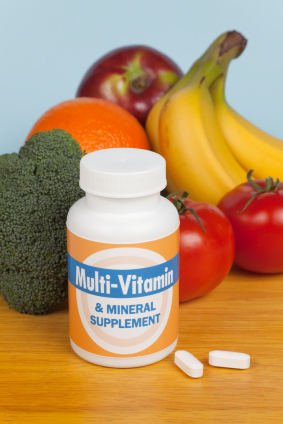Vitamin B5 (pantothenic acid) Information
The Benefits of Vitamin B5 (pantothenic acid)
By: Dr. George Obikoya
Vitamin B5 or Pantothenic acid is a water-soluble vitamin involved in the cycle of energy production in our body and is needed to make the neurotransmitter acetylcholine. It is also essential in producing, transporting, and releasing energy from fats.
Synthesis of cholesterol, needed to manufacture vitamin D and steroid hormones, depends on pantothenic acid. Pantothenic acid also activates the adrenal glands.
Pantethine, a byproduct of pantothenic acid, has been reported to lower blood levels of cholesterol and triglycerides. Vitamin B5 forms part of two substances, co-enzyme A and the acyl carrier protein, both of which play key roles in the release of energy from the food you eat. Vitamin B5 is also needed for healthy growth and the production of antibodies to help fight infection.
Poor muscle co-ordination, muscle cramps, numbness and tingling, painful burning feet, depression, fatigue, weakness, headache and loss of appetite result if you are deficient in this vitamin, which people that consume large amounts of alcohol plus people under stress or who have undergone surgery need to take even more of.
Besides playing a role in the breakdown of fats and carbohydrates for energy, Vitamin B5 is critical to the manufacture of red blood cells as well as sex and stress-related hormones produced in the adrenal glands (small glands that sit atop of the kidneys).
Vitamin B5 is also important in maintaining a healthy digestive tract and it helps your body use other vitamins (particularly B2 [riboflavin]) more effectively. It is sometimes called the "anti-stress" vitamin because it is believed to enhance the activity of the immune system and improve your body's ability to withstand stressful conditions.
Research studies suggest that vitamin B5 supplements may speed wound healing, especially following surgery. This may be particularly true if you combined vitamin B5 with vitamin C.
It is important for people who have sustained serious burns to take adequate amounts of vitamin B5 in their daily diet. When skin is burned, a substantial percentage of micronutrients may be lost, which increases the risk for infection, slows the healing process, prolongs the hospital stay, and even increases the risk of death. Many studies also suggest that a multivitamin including the B complex vitamins may aid in the recovery process.
Emerging studies in the last twenty years have suggested that high doses of pantethine (a stable form of vitamin B5) may improve cholesterol and triglyceride levels in people with high cholesterol with or without other risk factors for heart disease (such as diabetes, obesity, and menopause). The studies to date have included only small numbers of people, but have been encouraging because not only has pantethine lowered cholesterol and triglycerides, it has also increased HDL (the "good" kind of cholesterol). Plus, several of the studies have looked at the use of pantethine in special groups of people, such as adults on dialysis and children with high cholesterol.
Other related areas that are under current scientific investigation include use of pantethine for heart disease and for weight loss.
There may be some benefit to making sure that there is an adequate amount of pantothenic acid in your diet or taking extra vitamin B5 supplements if you suffer from arthritis. Some researchers report that blood levels of pantothenic acid are lower in people with rheumatoid arthritis than those without this condition.
Studies have shown that 2,000 mg/day of calcium pantothenate improved symptoms of rheumatoid arthritis including morning stiffness and pain. Similarly, obese patients with osteoarthritis may improve their symptoms if they receive dietary counseling about appropriate intake of vitamin B5 (as well as other nutrients) and weight loss.
We all need to take Vitamin B5, although the 10-25 mg found in many multivitamin supplements might improve your pantothenic acid status. Most cholesterol researchers using pantethine have given people 300 mg three times per day (total 900 mg).
Taking any one of the B complex vitamins for a long period of time
can result in an imbalance of other important B vitamins. For this
reason, it is generally important to take a B complex vitamin with
any single B vitamin.
Pantothenic acid is important for the breakdown of the foods we
eat into substances the body can use and is also important in the
creation of hormones and other substances in the body. You should,
therefore, ensure that your intake of this vitamin is adequate.
No serious side effects have been reported, even at intakes of up to 10,000 mg (10 grams) per day. Very large amounts of pantothenic acid (several grams per day) can cause diarrhea. Pantothenic acid works together with vitamin B1, vitamin B2, and vitamin B3 to help make the fuel our bodies run on ATP.
A good multivitamin is the foundation of health and nutrition. Take a look at our scientific reviews of many of the popular brands for factors such as ingredients, areas of improvement, quality level, and overall value. If you are looking for a high quality liquid multivitamin, we suggest that you take a look at the Multivitamin Product Comparisons.
References:
Fidanza A. Therapeutic action of pantothenic acid. Int J Vitam Nutr
Res 1983;suppl 24:53-67 [review].
Adding vitamins to the mix: skin care products that can benefit the skin [press release]. American Academy of Dermatology; March 11, 2000.
Antoon AY, Donovan DK. Burn Injuries. In: Behrman RE, Kliegman RM, Jenson HB, eds. Nelson Textbook of Pediatrics. Philadelphia, Pa: W.B. Saunders Company; 2000:287-294.
Aprahamian M, Dentinger A, Stock-Damge C, Kouassi JC, Grenier JF. Effects of supplemental pantothenic acid on wound healing: experimental study in rabbit. Am J Clin Nutr. 1985;41(3):578-89.
Arsenio L, Bodria P, Magnati G, Strata A, Trovato R.. Effectiveness of long-term treatment with pantethine in patients with dyslipidemia. Clin Ther. 1986;8:537-545.

